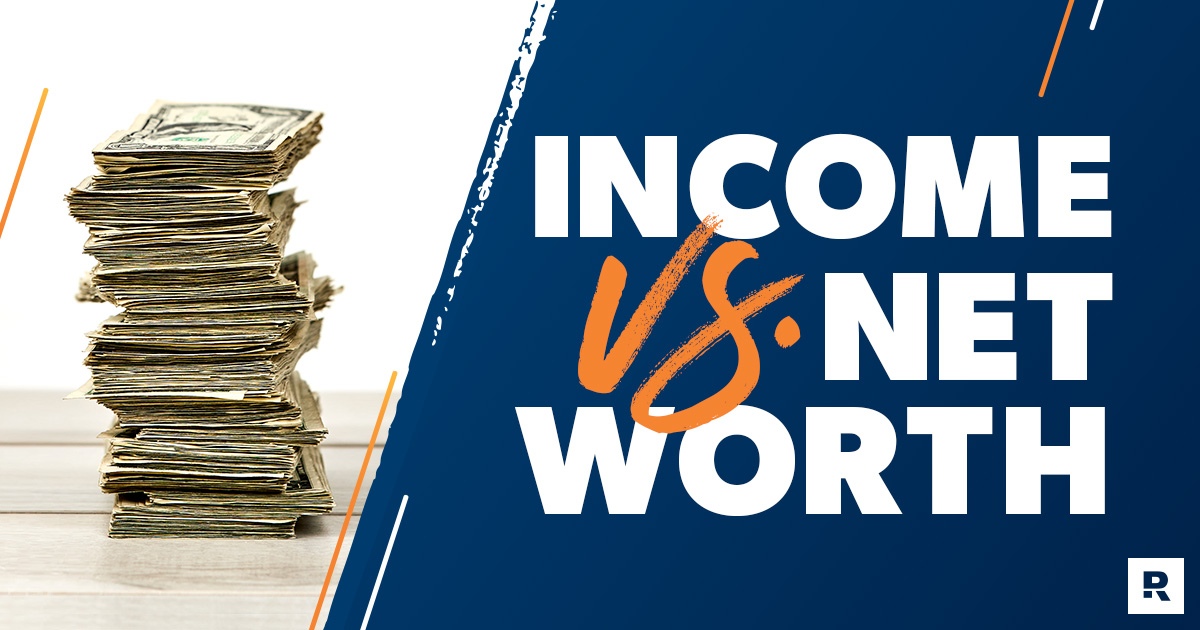
Here's the real deal: You can be making six figures and still feel broke. Crazy, right? But that's the truth behind the debate on net worth versus income. While most of us are chasing higher salaries, true wealth lies in what you actually own after paying off what you owe. Let’s dive deeper into this and uncover what truly defines financial success.
Table of Contents
- The Core Difference Between Net Worth and Income
- Why Looking Rich Doesn't Always Mean Being Wealthy
- Breaking Down What You Really Own and Owe
- Understanding Gross vs Net Income and Its Importance
- Common Pitfalls When Relying Only on Income
- How to Build Wealth Regardless of Your Income Level
- What Matters More for Financial Freedom: Income or Ownership?
- How Do You Compare to Others Financially?
- Where to Focus Your Energy to Grow True Wealth
- Final Thoughts
The Core Difference Between Net Worth and Income

Read also:Michael Strahans Net Worth In 2025 A Closer Look At His Wealth And Success
Let's break it down. Your income is all the money coming in—whether it's from your job, side hustles, or investments. But here's the kicker: your net worth is the difference between what you own and what you owe. It's the true picture of your financial health. Think of it like this:
Net worth = Assets – Liabilities
Imagine this scenario: You own a house worth $300,000, a car valued at $25,000, $50,000 in a retirement account, $5,000 set aside for emergencies, and $2,000 in your checking account. That’s $382,000 in assets. But wait, you still owe $100,000 on your mortgage, $20,000 on your car loan, $15,000 in credit card debt, $60,000 in student loans, and $1,000 in unpaid medical bills. When you subtract all that debt, your net worth drops to $186,000. See how income only tells part of the story? Net worth gives you the full picture.
Why Looking Rich Doesn't Always Mean Being Wealthy
Now, here's where it gets tricky. You might look like a financial rockstar with a high income. You're living in a fancy apartment, flaunting the latest tech, and jet-setting around the world. But if you're spending more than you're earning or carrying a mountain of debt, chances are you're not building real wealth.
Let me paint you a picture:
- Person A earns $150,000 annually, lives in a stylish apartment, and has the latest gadgets.
- Person B earns $45,000 but owns their home outright, has no debt, and saves religiously.
Who do you think is financially stronger? Yep, it's Person B. That's because it's not about how much you make; it's about how much you keep. Debt can drain your resources, while savings, smart investments, and owned property give you control and long-term stability.
Read also:Hoziers Net Worth In 2025 The Inside Story Of His Financial Success
Breaking Down What You Really Own and Owe
The simplest way to get a handle on your finances is to tally everything you own and subtract everything you owe. Here's how:
Your Assets Might Include:
- Your home
- Your car
- Your checking and savings accounts
- Your emergency fund
- Your retirement accounts, like a 401(k)
Your Liabilities Could Include:
- Your mortgage
- Your student loans
- Your credit card debt
- Your car loans
- Your unpaid medical bills
Add up all your assets, then subtract your total liabilities. Voila! That's your real financial standing—not your income.
Understanding Gross vs Net Income and Its Importance
You’ve probably heard both terms, but do you actually use them when managing your money? Gross income is the total amount you earn before taxes and deductions. Net income, on the other hand, is what's left after all those deductions. This is the money you actually have in your pocket to work with, so it's crucial for budgeting and investing.
- Gross income is your total earnings before deductions.
- Net income is the money you take home after taxes, insurance, and retirement contributions.
For instance, if you earn $50,000 a year but pay $1,200 in deductions every month, your monthly take-home pay is closer to $2,967. This is the money you should focus on when planning your budget or making investment decisions.
Common Pitfalls When Relying Only on Income

It's tempting to think that a bigger paycheck will solve all your financial woes, but that’s rarely the case. Here are some common mistakes people make:
- Spending more as income increases
- Taking on more debt instead of saving
- Postponing important investments
- Ignoring rising expenses
Overspending can eat away at your assets. Debt can weigh you down. On the other hand, savings and smart investments can help your money grow over time. Income is great—but only if you use it wisely.
How to Build Wealth Regardless of Your Income Level
Even if you're not raking in six figures, you can still build a strong


